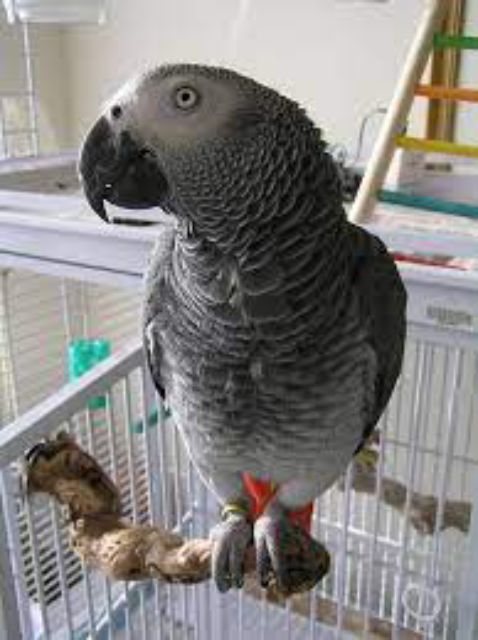When thinking of the long-term happiness of you and your parrot, you will inevitably need to learn how your parrot thinks in order to influence its behavior. Sure, you can get it to step up on your finger, and it seems to eat fine, but why does it scream incessantly hour after hour?
Why does it bite you? Why does your parrot bite everyone but you? How can you have a happy, healthy home for your parrot?
When you have a pet parrot that will live 20 years (for a conure) or even possibly 80 or more (think African Grey parrots or Cockatoos), there are long-term planning considerations that you need to make.

Parrot Psychology
Researching parrot psychology as early as possible will help you mold your bird in ways that will pay off over the years even as soon as a few months. Do you ever wonder why there are so many slightly used birds (one or two years old) in the paper?
It’s because their owners did not raise them with an eye to the future, and when their birds got out of the “cute and cuddly” phase into their birdie adolescence (this happens at 6-10 months for conures and at two years or so for greys and cockatoos) their owners don’t know how to deal with them anymore.
They may have figured out how to feed them correctly, but then they “kill them with kindness” … by which I mean that they spoil them so much that they become impossible for anyone, often including the owner, to deal with anymore.
There are two kinds of influences on parrot behavior. One is instinctive. Pet parrots may cry outside if they see a predator bird. This is an instinctive action brought by a fear of being picked off by an avian predator.
Morning and evening calls are another instinctive behavior, as is shoving food out of a dish and scattering it on the ground. These behaviors are better adapted to that change. Learning what your bird is prone to do instinctively will give you an opportunity to work with it or around it as needed.
The more frustrating influence on the parrot’s behavior is learned behavior. It would not surprise a parrot owner to find out that they can teach his parrot tricks by rewarding the behavior he likes.
This is the kind of learned behavior that most people expect out of an animal, like when they teach a dog to sit. But what is surprising is what a parrot learns that is not intentional on a human’s part.
For example, if your parrot is having a screaming fit, is the proper response to:
- take the bird out of its cage,
- cover the bird or
- yell at the bird to shut up?
Well, I would say none of these responses is right. Think about what your bird is learning varies with each response you make: yelling gets my person to:
- play with me
- make me more bored
- participate in my fun.
A person who yells back at a bird is interacting in a way that is effective (if not wonderful) for changing the behavior of other members of the human species that work in unintended ways for a different species.
What do I recommend? Ignoring a screaming bird is, I think, the best response of all. (A short cover-up is recommended for prolonged screaming, but before your parrot noises get you crazy, you need to figure out why and fix the problem.)
